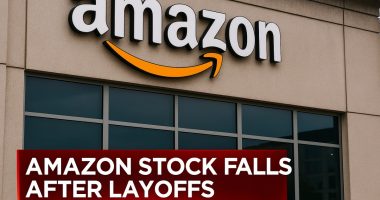Welcome to the Market Herald, I’m Simon Druker and you’re watching the Top Line.
good natured Products Inc. is focused on transforming bio-based technology into earth-friendly products, available across the food sector. The Vancouver-based company produces plant-based products in an effort to reduce the global consumption and reliance on petroleum-based products.
I’m joined today by the company’s Director and CEO Paul Antoniadis. Paul, thanks for joining us.
TMH: Tell us about the National Biostrategy recently announced in the United States by the Whitehouse and how it could impact GDNP both in the near and longer term?
PA: This announcement coming out the US is pretty significant. The US is sending a very strong signal to all the industries operating within the US and frankly around the world that the time is now to begin to transition away from petroleum-based products that are used every day to run your companies or every day to enjoy in your home, to a bio-based material product as an alternative to that, and they’ve set some pretty ambitious goals. They’re targeting 90% of all petroleum material to transition to bio-based material. Now for listeners that are familiar with good natured®, helping businesses and customers transition away from fossil fuels to plant-based or bio-based products has been in our DNA from day one.
TMH: Are, or have there been any other examples of regulatory shifts that could be positive for the company?
PA: There’s a couple in mind. In Hawaii they’ve banned fossil fuel derived packaging and they’ve demonstrated their commitment in embracing the move to bio-based material packaging. This really supports the strong signal that the US just sent out and, in my opinion, is going to be used not only by the US administration but also around the world as a case study of success. So we’ve got a great partnership in Hawaii and they’re having a hard time keeping up with demand. It’s signifying to us that the policy has created a significant demand increase in Hawaii.
Now in Canada, there’s been a ban on single use plastic that is difficult to recycle. What that did is drove a lot of innovation and inquiry into the industry to define alternatives to these petroleum-based plastics. I think these two policies which I’m highlighting are just underpinning the significance of this announcement out of the US, which focuses on increasing investment and biobased manufacturing and expertise in the US. For listeners that may not be familiar with good natured®, we’ve been on the forefront of that and frankly we’re on the forefront of this policy. We have over 200,000 square feet of bio-based manufacturing. Half of our growth is focused on acquiring petroleum-based packaging and product manufacturing and converting their capacity, the materials and customers, to biobased materials. We’re already bridging the gap to this goal of 90% of all petroleum materials transitioning to bio-based. With our 1600 customers, we’ve diverted over 30 million pounds of petroleum plastic to bio-based materials. We’ve already got that bio-based manufacturing expertise and a growing footprint.
TMH: Is this a trend you see continuing or even intensifying in nature?
PA: If you take a look at this policy, it’s definitely an incredible signal to the industry but outside of policy, even US and in the Canadian ban on single use plastics, are major retailer sustainability goals. I’ll just speak to a few out of the US, whether it’s Costco, Walmart or many others who have adopted sustainable packaging standards that wholesale food producers, and many other vendors, need to adhere to in order to qualify to sell into those channels and obviously they work with those suppliers to achieve that over time. A lot of our 1600 customers are wholesale food producers who are selling into these channels and we’re working with them to meet their needs, whether it’s a higher bio-based content level or a higher recycled content level.
We work with them by giving them a choice of bio-based materials that they can use to make their products. A lot of small businesses and mid-enterprise companies are privately held, a lot of them touch the earth every day in growing their food. They’re putting a lot of effort into creating healthy food for us and they’re wanting to extend that into their packaging to make a better impact to human health and the environment. Lastly, it is consumers like yourself. I’ve never met a consumer that isn’t good natured. They want to make the right choices on the brands they purchase and they pick the products that they use that have a positive impact to the environment and human health, and that consumer demand’s not going away. We work really hard at making it easy and affordable for these wholesale food producers to make the switch to biobased packaging so that their end consumers can feel excited about purchasing because of the positive impact it’s having.
TMH: How are you positioned to take advantage of these trends?
PA: First and foremost, we’ve anticipated this, we knew this writing was on the wall. So we’ve expanded our North American manufacturing footprint to nearly 200,000 square feet. We also have built out a very strong outsourced supply chain network to help deliver on these manufacturing requirements for bio-based materials and we have the expertise to bring products to life. Whether that’s in material science, our sourcing skills, our manufacturing engineering skills, we have established a bridge that can enable our existing customers to expand their product into bio-based materials. That’s what this big signal is. It’s time for everyone to take that first step in transitioning away from petroleum materials to bio-based materials, and we have that bio-based manufacturing footprint and expertise to help customers do that.
TMH: So to encapsulate, you are saying that in spite of current economic conditions, you are still seeing growth and demand for eco-friendly products?
PA: We feel very confident about our business strategy, which centers on half of our growth coming from organic initiatives and half our growth coming from acquisitions. Whether we’re working with a customer for the very first time, we give them choice, we give them the widest choice of materials, whether they want to use our fully compostable materials made from PLA, industrial compostable materials made from PLA, or if someone’s really focused on curbside recycling they can choose our Bio-PET material. So whether it’s material choice or using our stock packaging or helping them design that custom packaging on the organic side, we can really serve customers. On the acquisition side of our business, where we’re transitioning petroleum manufacturing to bio-based material manufacturing, we’ve already done it as we’ve acquired four companies over the last three years.
We’re very confident in manufacturing high performing bio-based material products that are equal to petroleum. It’s hard to believe that March was the three-year anniversary from the first Covid shutdown, it’s amazing how time goes by, over the last three years we’ve had incredible changing operating conditions, even for the most veteran operators around the world, from covid shutdowns to supply chain disruptions to inflationary price increases to now interest rate hikes that many of us believe is going to be slowing down the economy.
What we’ve demonstrated is that our strategy can work with the support of our team’s execution in any type of condition that that is presented, and we’ve grown through the execution of our team and our partners from a $10 million company three years ago to a preliminary announcement of just under a $100 million dollars in revenue. So, we 10x it. We feel good about our strategy and the demand for earth-friendly or bio-based material products. I think this announcement really amplifies our growth and the demand for bio-based material products is not going away. Consumers are wanting this and that’s ultimately going to drive the choice for our products.
Thanks again for joining us today here at the Top Line and sharing your insights.
We’ve been speaking with good natured Products Inc. Director and CEO Paul Antoniadis. The company trades on the TSX Venture Exchange under the ticker symbol “GDNP” and on the OTCQX in the US under the ticker symbol GDNPF. You can also visit goodnaturedproducts.com for more information.
Thanks for watching Top Line. In Vancouver, I’m Simon Druker. We’ll see you next time.
FULL DISCLOSURE: This is sponsored content issued on behalf of good natured Products, please see full disclaimer here.



